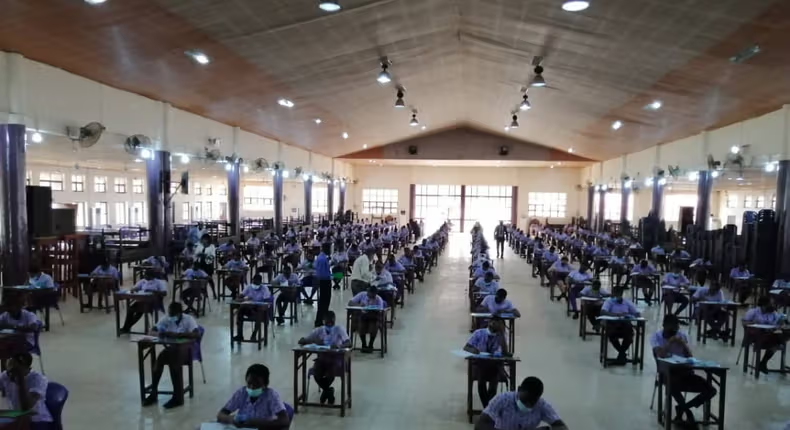< 1 mn read
The West African Senior School Certificate Examination (WASSCE) serves as a critical measure of student performance in West Africa. The following data, provided by Statisense, presents the pass rates for Nigerian students from 2014 to 2024, highlighting trends and changes influenced by educational policies and external factors.
- 2014: A Low Start (31.28%)
- The success rate was relatively low at 31.28%, reflecting significant challenges in that year.
- 2015: Slight Improvement (38.68%)
- A modest improvement to 38.68%, indicating gradual progress.
- 2016: Significant Leap (52.97%)
- A notable increase to 52.97%, surpassing the 50% mark for the first time.
- 2017: Momentum Continues (59.22%)
- Continued upward trend with a pass rate of 59.22%, showing sustained academic advancement.
- 2018: A Setback (48.15%)
- A decline to 48.15%, highlighting inconsistencies in success rates.
- 2019: Back on Track (64.18%)
- A strong rebound with a pass rate of 64.18%, restoring confidence in the system.
- 2020: Slight Growth (65.24%)
- Despite the COVID-19 pandemic, the pass rate increased slightly to 65.24%.
- 2021: Record-Breaking (81.70%)
- A landmark year with a record-high success rate of 81.70%.
- 2022: Strong but Slight Decline (76.36%)
- A slight decrease to 76.36%, yet still reflecting strong performance.
- 2023-2024: Stabilization and Drop (79.81%, 72.12%)
- The pass rate stabilized at 79.81% in 2023 before dropping to 72.12% in 2024.
This data underscores the fluctuating nature of educational success rates and highlights the impact of both internal and external factors on student performance.

